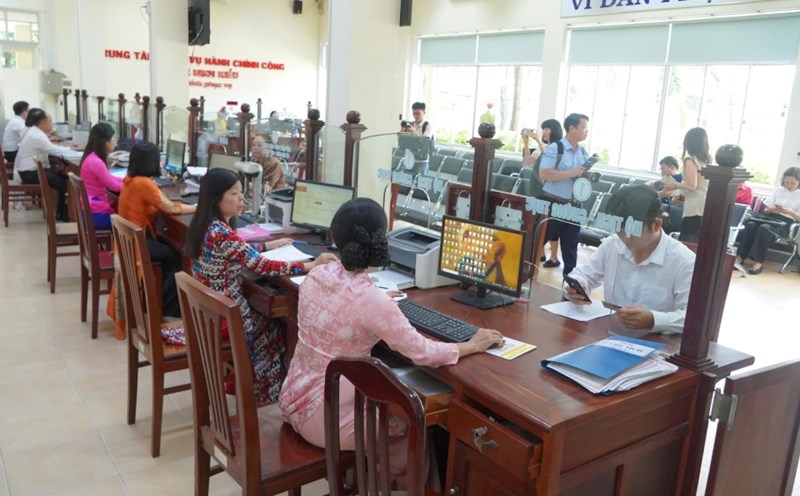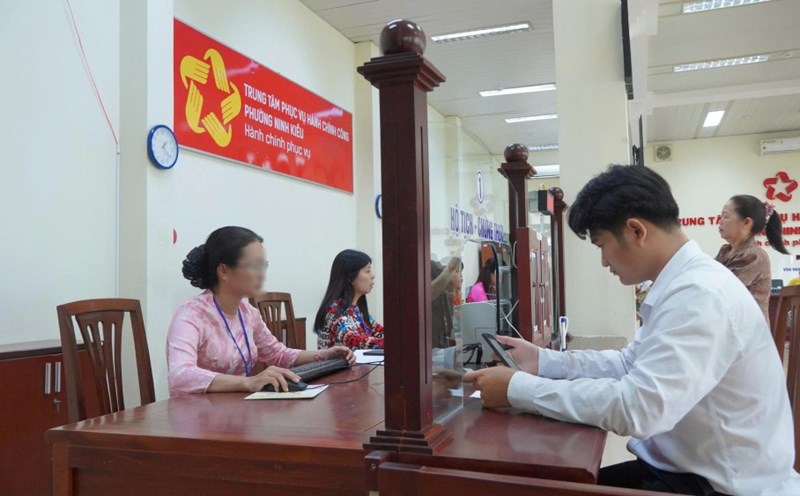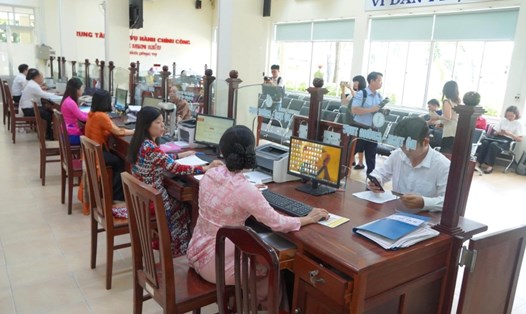The Government Steering Committee on the arrangement of administrative units at all levels and the development of a model of organizing local government at both levels has just issued Official Dispatch No. 20/CV-BCD guiding the establishment of public service units providing multi-sectoral and multi-disciplinary public service services at the commune level.
According to the instructions, the People's Committee at the commune level decides to establish under its authority a public service unit providing basic, essential public service in many sectors and fields (including: culture, sports, tourism, information, communication, environment, agricultural promotion, urban development, etc.) guaranteed by the state budget.
Regarding the number of employees, based on the total number of civil servants receiving salaries from the state budget (excluding the education and health service payroll) assigned by competent authorities, in the immediate future, it is recommended that the provincial People's Committee review, balance, and allocate the number of employees receiving salaries from the budget when establishing this public service unit at the commune level, ensuring that it meets the requirements of assigned tasks and complies with the direction of competent authorities.
The People's Committee at the commune level is responsible for recruiting and arranging enough civil servants to work at public service units according to the assigned number of positions.
In case the number of civil servants assigned is not yet recruited in a timely manner, the People's Committee at the commune level shall sign a labor contract for a person with expertise and profession that immediately meets the requirements of the task as prescribed in Clause 3, Article 9 of Decree No. 111/2022/ND-CP dated December 30, 2022 of the Government.
The establishment of multi-sector and multi-sector public service units at the commune level is a step in line with the trend of streamlining the apparatus, meeting modern management requirements, while improving the efficiency of serving local people and businesses.
When implemented synchronously, this model will help unify management focal points, effectively exploit resources, reduce overlap in functions and tasks, and at the same time create conditions for people to access many types of public services right in the area, without having to go through many intermediaries.
Public service units are organizations established by competent State agencies, political organizations, socio-political organizations according to the provisions of law, with legal status and providing public services, serving state management (definition stated in Clause 1, Article 9 of the Law on Civil Servants 2010).
In Clause 2, Article 9 of the Law on Civil Servants 2010, public service units include the following types:
given autonomy: Being a unit given complete autonomy in performing tasks, finance, organizational structure, and personnel.
Not yet given complete autonomy: In contrast to the above type, public service units in this case have not been given complete autonomy in performing tasks, finance, organization, and personnel.
Regarding the financial autonomy of public service units, Article 9 of Decree 60/2021/ND-CP divides them into the following groups:
Public service units self-guarantee regular and investment expenditures.
Public service units self-guarantee regular expenditures.
The public service unit self-insures a part of the regular expenditure.
Public service units with regular expenditures guaranteed by the State: This is a unit with a level of self-guarantee for regular operating expenses of less than 10% or no source of career revenue.











